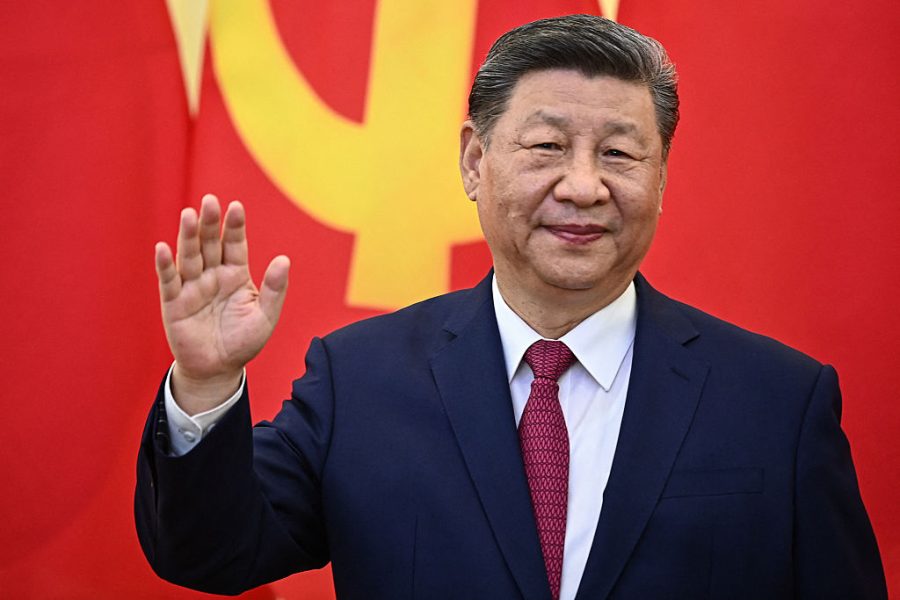It is generally agreed that Britain needs to improve its China capabilities. That a greater understanding of Chinese culture, history and language is needed in the UK was one of the few tangible findings from the government’s ‘China audit’, the bare bones of which were published earlier this year. But what happens when institutions responsible for building those capabilities are compromised by the Chinese Communist Party (CCP)?
That is the worrying question arising from a report published this week into the state of China Studies in British universities, which details a chilling pattern of spying, intimidation, harassment and self-censorship at the hands of the CCP. The report, by UK-China Transparency, a charity that seeks to shed light on some of the darker corners of Britain’s relationship with Beijing, suggests that the CCP is seeking to replicate on British campuses the repressive control it exercises at home.
This is not the first time that China Studies have come under scrutiny
The report is based on evidence from a survey of 50 academics in the field of China Studies, and includes allegations that Chinese students have been pressured to spy on classmates. There are also claims that the CCP has sought to restrict critical research by threatening scholars’ family members in China and by warning university administrators about their financial dependence on China. Others reported digital and verbal harassment and the demotion by one university of an academic who was deemed to be a threat to relations with China.
‘This survey presents strong evidence that CCP-linked repression has had and may continue to have a distortive effect on our China studies system, disincentivising sensitive yet critical research,’ the report concludes.
This is not the first time that China Studies have come under scrutiny. A highly critical report by Parliament’s Intelligence and Security Committee warned in July 2023 that the CCP was using money and influence in order to ‘penetrate or buy academia’ in order to ‘ensure its international narrative is advanced and criticism suppressed.’ It said China had stifled debate by exerting influence over the institutions, Chinese students and over academics, who had been offered professional inducements including travel opportunities and research funding.
Amnesty International has also described the routine intimidation and harassment of Chinese students by CCP loyalists and informers, with students reporting that their families in China were targeted and threatened by police if they engaged in activism overseas. The CCP-linked Chinese Students and Scholars Association (CSSA) and Confucius Institutes are central to this surveillance, but continue to be indulged by British universities.
The CSSA, overseen by the Chinese embassy, is the CCP’s eyes and ears on campus, while Chinese government-funded Confucius Institutes, ostensibly language and cultural organisations, have been accused of censorship and surveillance. British universities host thirty Confucius Institutes, more than any other country.
Almost all UK government spending on Mandarin language teaching in British schools – with at least £27m allocated from 2015 to 2024 – is channelled through university-based Confucius Institutes. However, not only are they funded by Beijing, but Chinese teaching staff are vetted for their political loyalty. A mandatory application form for teachers going abroad requires that applicants be vetted by a CCP committee and have references detailing their ‘political attitude’ and their ability to implement the Party’s ‘request and report system’ –surveilling and informing on colleagues, students and others they come into contact with, in other words, while propagating CCP propaganda.
They have come under close scrutiny and have had their activities curtailed in Europe, Canada, the US and Australia. Last week, it was reported that six Australian universities have quietly closed their Confucius Institutes, halving their presence in Australia, following growing concerns over CCP influence operations. Sweden was the that first country in Europe to close all its institutes over similar concerns. However, they continue to thrive in Britain.
In June, during a statement on the ‘China audit’, Foreign Secretary David Lammy said that enhancing China capabilities was a ‘core focus’ of the government, and that action would be taken to improve Mandarin language learning among civil servants. The internationally recognised test of Mandarin language proficiency for non-native speakers is called the Hanyu Shuiping Kaoshi (HSK), and it contains 6 different levels. There are 19 authorised test centres in the UK – and all but one of them are run by Confucius Institutes. In other words aspiring diplomats and business people, looking to take on some of the most sensitive and challenging roles in business and diplomacy, are having their language skills (and probably much else) assessed by a CCP-front organisation. This would be almost comical if the implications were not so potentially far reaching.
There have been some small victories in the battle against CCP influence in academia. The China Forum (formerly the China Centre) at Jesus College, Cambridge, whose stated mission was to ‘deepen mutual understanding between China and the West’, is due to close next month after heavy criticism over the transparency of its funding, its partnerships and its parroting of CCP propaganda. While it is sad to see the demise of any academic institution, the Forum had become little more than a Beijing mouthpiece, allowing little room for subjects deemed offensive by the CCP.
Britain’s largest China Studies centre, the Lau Institute at King’s College London, has resisted demands for greater transparency over funding. In an earlier report, UK-China Transparency revealed that its biggest donor by far, who has given at least £11 million, is a Hong Kong tycoon with links to the CCP. King’s has rejected Freedom of Information requests for details of any terms and conditions attached to its funding and about the broader system by which it assesses the ethics of donations.
This month, a potentially powerful new tool comes into law – the Higher Education (Freedom of Speech) Act. In theory at least, this mandates the Office of Students (OfS) to ensure freedom of expression on campuses. As Skills Minister Jacqui Smith put it, universities should be ‘places of rigorous debate’, and ‘any attempt by a foreign state to intimidate, harass or harm individuals in the UK will not be tolerated.’ If she is serious, and the law is strictly enforced, it is hard to see how Confucius Institutes or the CSSA can survive on British campuses.
The OfS is reportedly examining both. And if evidence is needed, it can be found in abundance in the halls and classrooms of Britain’s China Studies centres, so badly hollowed out by fear and harassment.








Comments